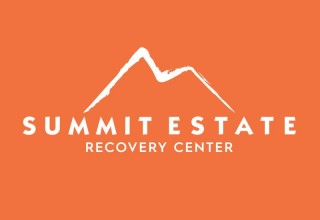
SARATOGA, Calif., March 9, 2018 (Newswire.com) - Dr. Kenneth Blum, the award-winning neuroscientist who co-discovered the link between genetics and addiction gets “Up Close and Personal” with Summit Estate Recovery Center alumni and their families on March 14, 2018 at 6 p.m. at Summit’s Saratoga outpatient facility at 20640 3rd Street. Blum has been affiliated with Summit, whose neuroscience-based clinical program he has endorsed, for several years. He has included Summit findings in the clinical studies he publishes regularly in the leading medical and scientific U.S. and international journals.
“I am so honored that Dr. Blum has offered to get ‘up close and personal’ with us. He was revolutionary in his groundbreaking research demonstrating that addiction is a brain disease. His research changed everything,” said Summit Clinical Director, Tyler Fitzgerald, LMFT, CATC-IV. “Before 2010, insurance companies believed that addiction was something that could simply be turned on and off. He changed that with his groundbreaking research findings. I have encouraged many of my colleagues here in the Bay Area to take part in this rare event. This is a do not miss for those working in addiction and recovery.”
Blum will discuss his decades of research that led in great part to the American Society of Addiction Medicine's 2010 decision to redefine addiction as a brain disease with behavioral side effects. He will also speak about his Genetic Addiction Risk Score ("GARS"™) test that determines predisposition to addiction by testing 22 sequential variations in 10 genes and how to combat the dopamine deficiencies that cause many addicts and alcoholics to self-medicate.
Speaking by Skype from Austin, Texas, Blum will discuss his decades of research that led in great part to the American Society of Addiction Medicine’s 2010 decision to redefine addiction as a brain disease with behavioral side effects. He will also speak about his Genetic Addiction Risk Score (“GARS”™) test that determines predisposition to addiction by testing 22 sequential variations in 10 genes and how to combat the dopamine deficiencies that cause many addicts and alcoholics to self-medicate. As Chairman of the Board of Geneus Health, located in San Antonio, after a 50 years sojourn his team has created “Precision Addiction Medicine” a disruptive technology that matches the GARS with one’s personalized pro-dopamine neuro-nutrients called restoreGen™.
Born and raised in New York, Blum received his Ph.D. in Neuropharmacology from New York Medical College and is a graduate from Columbia University and New Jersey College of Medicine. He trained at the Institute of Behavioral Genetics, Colorado University at Boulder, Colorado. A retired Professor of Pharmacology at University of Texas where he served for 23 years, Blum is currently an adjunct Professor, in both the Department of Psychiatry at University of Florida College of Medicine and McKnight Brain Institute and the University of Vermont. He is Adjunct Full Professor in the Department of Psychiatry & Behavioral Science, Keck School of Medicine, University of Southern California and Wright University Boonshoft School of Medicine, Dayton, Ohio. Among many other awards, he has been recently been awarded the prestigious Marquis Who’s Who Lifetime Achievement Award.
Over the years he has published over 500 abstracts, peer-reviewed articles and books. He coined the term “Reward Deficiency Syndrome“ in 1995 as the lead author on the first genetic association of a dopaminergic gene with severe alcoholism, he is considered by some as the “Father of Psychiatric Genetics”.
“As the head of Summit’s weekly family program, I am so pleased to give our alumni and their families an opportunity to meet someone of Dr. Blum’s stature “up close and personal,” said Annee Delaware, LPT/LVN, CHT, EAT. “I have also invited some local Silicon Valley clinicians to attend. At the end of the Q&A, Dr. Blum will answer audience questions about the role genetics plays in addiction and how important it is to know, when raising children if they are genetically predisposed and how to mitigate the likelihood of addiction.
For more information and to RSVP, please contact Summit Estate Recovery Center at (800) 701-6997.
Source: Summit Estate
Share:




